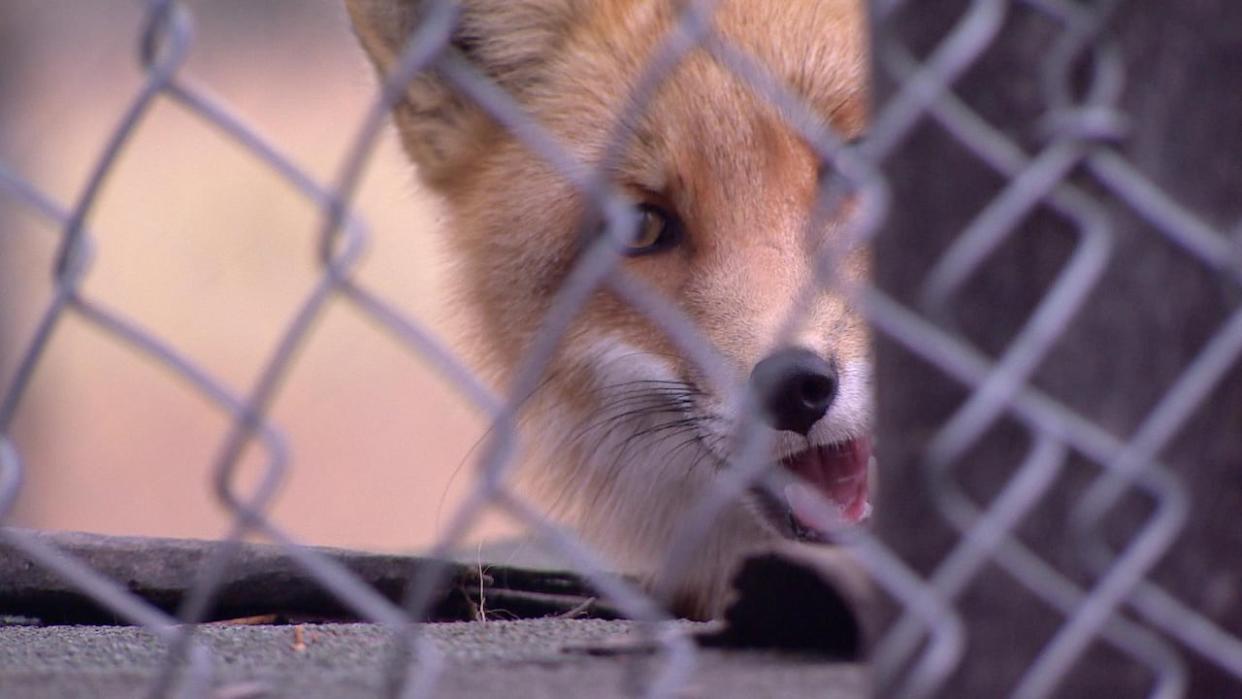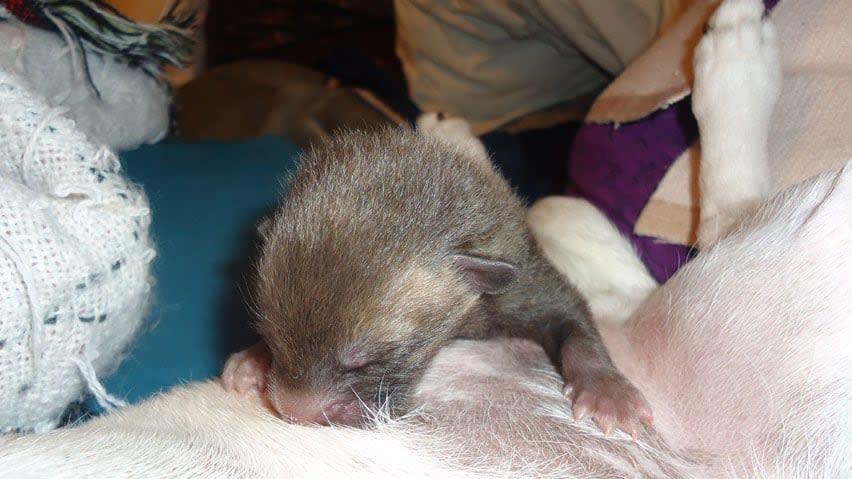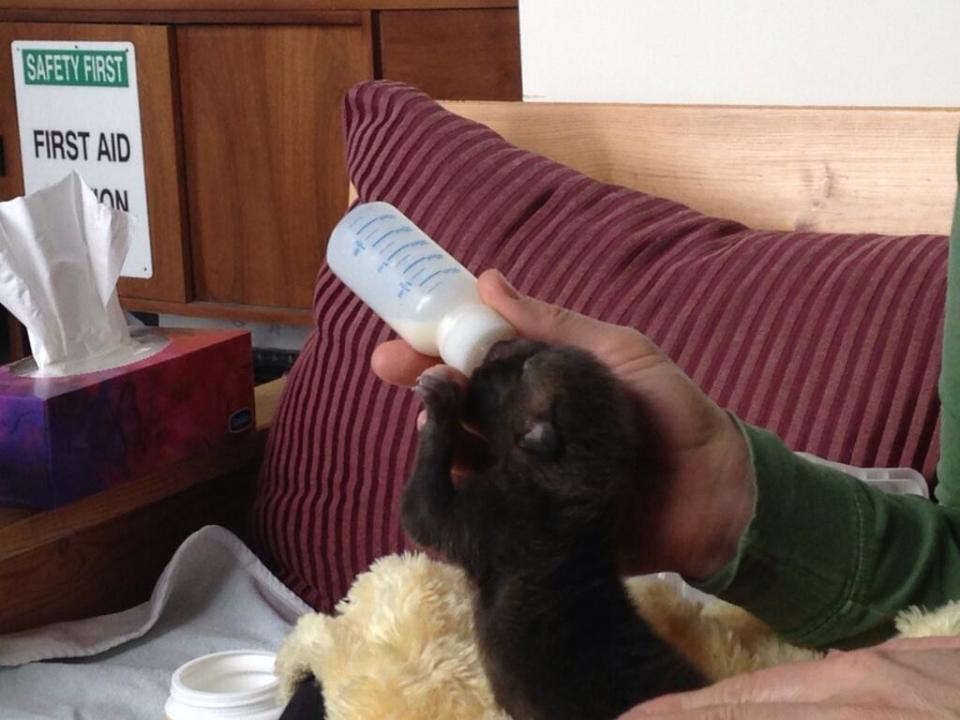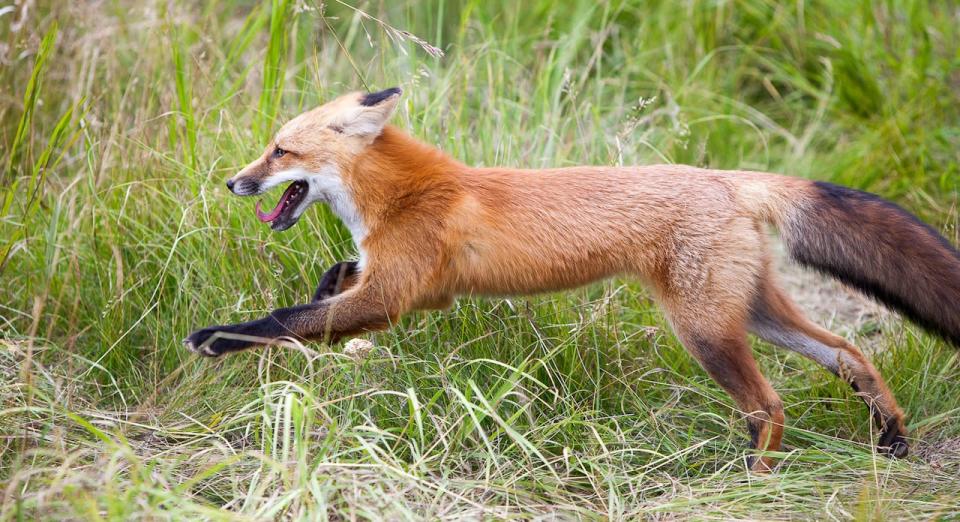Buddy, the famous Yukon fox once thought to be a dog, has died

Almost 10 years after a case of mistaken identity that made international headlines, the Yukon Wildlife Preserve has laid to rest the red fox affectionately known as Buddy.
Discovered when it was days old, the tiny creature was initially thought it to be a puppy — and briefly nursed by a Chihuahua — before becoming a crowd favourite at the preserve, and beyond.
The fox was found abandoned at Marsh Lake in 2014 by Yukoner Ralph Shopland.
Figuring it was a puppy, Shopland and his family took to Facebook to find a wet nurse.
Whitehorse resident Diana White took on that task, because her Chihuahua named Baby-Girl had just given birth.
"I kept looking at him. I'm going, 'This isn't a dog'.... Like I just knew it wasn't a dog," she said.
"I was like, 'I can try my dog and see what she does', because she had just given puppies a couple days before. She just laid there and let him suckle."

The fox found a temporary surrogate mother in Baby-Girl the Chihuahua. 'She just laid there and let him suckle,' owner Diana White said. (Submitted by Diana White)
As the days passed, the little creature developed an "obvious" smell, and a little white tip on his tail.
Theories emerged it was a bear cub, an otter, a marten or a wolverine, White said.
Eventually, Yukon Wildlife Preserve staff concluded it was a fox kit, and offered to take the critter into their care.
Lindsay Caskenette was one of those staff.
"It was less than two weeks old when it came into our care. So it all happened in the pretty immediate days of this animal's life. When it's opened it eyes it was to humans," she said.
In the fox's first few months, Caskenette said the preserve's staff were focused on giving it the best chance of survival in the wild.
"We were trying, at that point, to ensure that staff were not spending too much time with it — only meeting its basic needs. But one of the basic needs of a small animal is nurture,... so it was a difficult balance," she said.
"Then you add in that this adorable, fluffy, very charismatic little creature and it's really hard not to get attached."

The fox, pictured in the early days of its life. Diana White helped care for it for a few days, and recalls the confusion over exactly what she was caring for. 'I'm going, 'This isn't a dog.' (CBC)
Eventually, staff determined it was unlikely that the fox would be able to be released back into the wild.
That meant he needed a long-term habitat, said Caskenette, who is now the preserve's manager of visitor services.
The Yukon Wildlife Preserve needed to fundraise $10,000 to build it, and the fox's new global fan base was ready to help.
"Somehow his story just kind of caught all the media. People magazine caught it.... Just the the reach of it was crazy," Caskenette recalled.
As the fox grew, Caskenette said he developed a distinct playfulness and personality.
He became known as Buddy to some of the preserve's visitors.
"Partly because he was raised by a Chihuahua and partly raised by humans, he was not far off the mark of a dog.... It just goes to show how important in any animal, including ourselves, those first days and weeks, the initial exposure to life is. Because his was humans and not his own kind, that really set a different course for that animal."

The fox running free in the habitat that was constructed for it at the Yukon Wildlife Preserve after support came from all over the world. (Jake Paleczny/Yukon Wildlife Preserve)
Sometimes, she said, the fox would roll over, or cry or whine.
"He was so ridiculous in some of his mannerisms: the crying and the wagging of the tail and and being so dog-like really just captivated people," Caskenette said.
"To also see people's reactions to that — that was really special."
Caskenette also endearingly recalled people's reactions to his abrasive smell.
"I just remember him being so bloody smelly. Just so smelly. What's really funny is we don't have skunks here in the territory. And people would come visit the facility and they'd breathe in like, 'Nature's so lovely.' But they'd that at the red fox habitat. And it smelt very skunky."
Fox lived a "really long health life"
The Yukon Wildlife Preserve announced late last month that they'd made the difficult decision to put their beloved fox to rest.
After a long, gradual decline in health he died just shy of 10 years old.
He'd enjoyed a "really long, healthy life," Caskenette said.
"Generally, the length of the life of a fox in the wild is a small fraction of that. So we were lucky to see so much more of that individual's personality and life in our facility."
The announcement of his passing prompted an outpouring of photos and memories on the preserve's Facebook page.
"I'm happy that everything worked out for him, and everybody enjoyed him," White said. "And that we had a little part in his life."
Caskenette said her team were working on a way to make sure his story isn't forgotten.
"It's more than just a viewing experience for people to see these animals or see some of this behaviour, but to learn their stories and hopefully encourage us to do something differently."


